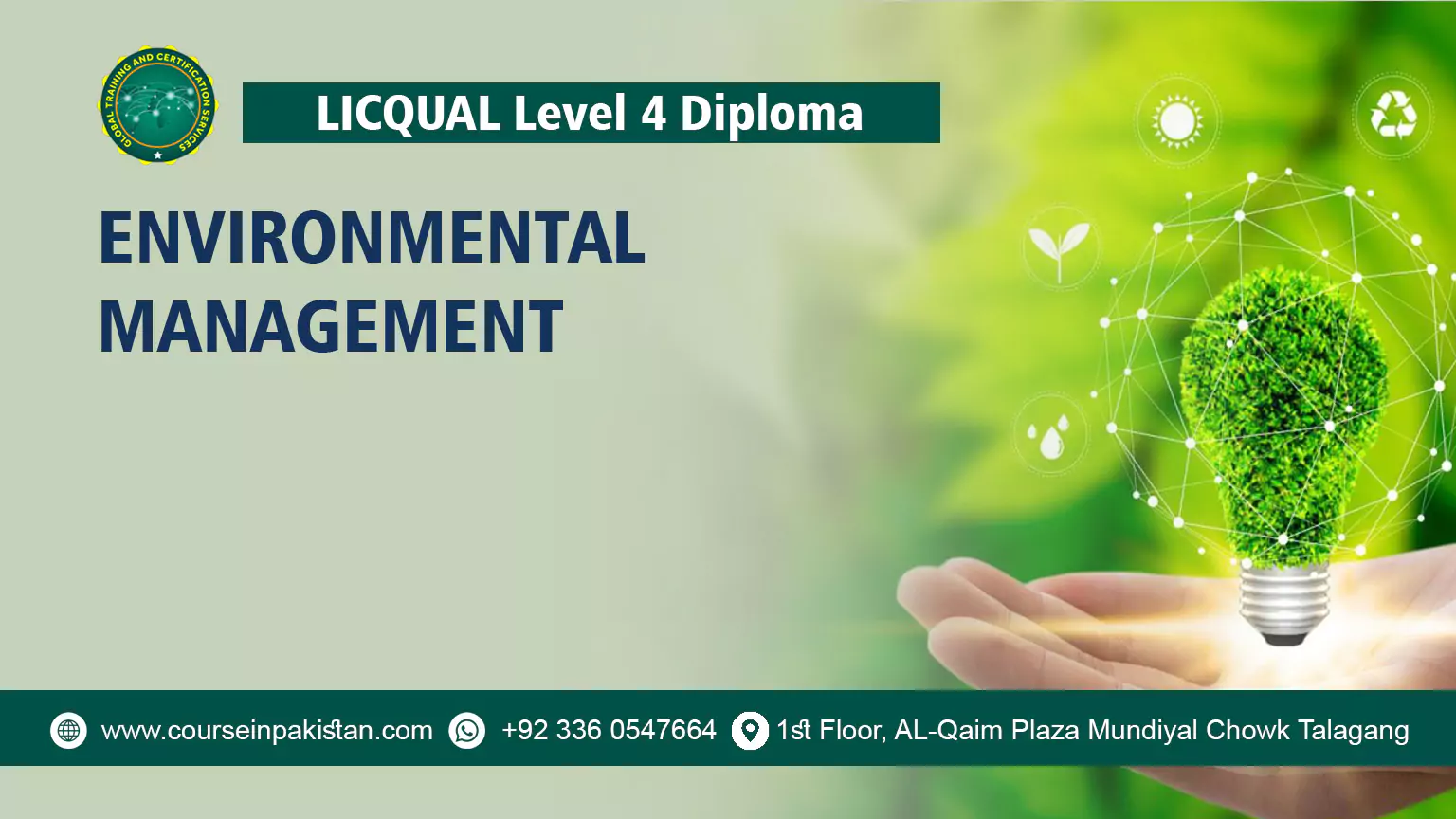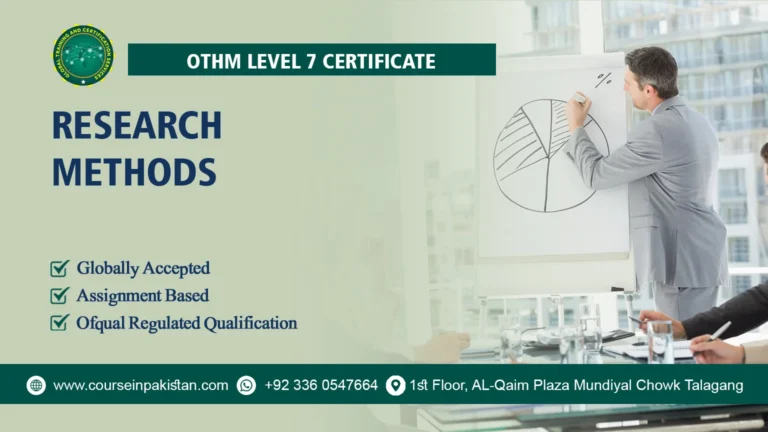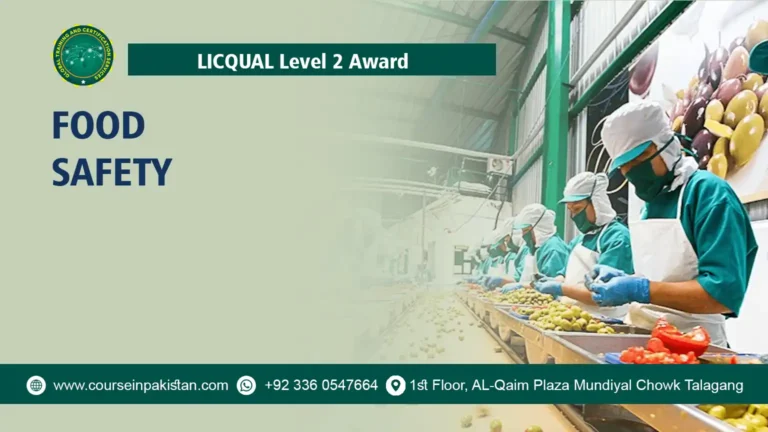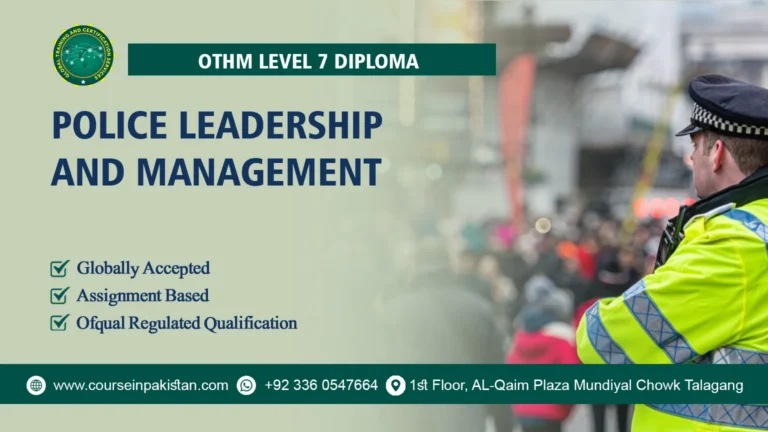
LICQual Level 4 Diploma in Environmental Management
“Navigating the Path to Sustainability: Exploring the Level 4 Diploma in Environmental Management”
In a world increasingly conscious of its environmental impact, the need for skilled professionals in environmental management has never been more pressing. Enter the Level 4 Diploma in Environmental Management, a comprehensive program designed to equip individuals with the knowledge and skills necessary to tackle the complex challenges of environmental sustainability. In this blog post, we’ll delve into the intricacies of this diploma, exploring its course structure, benefits, and future prospects.
At Level 4, learners delve deeper into the intricate dynamics of environmental management, exploring nuanced concepts and strategies essential for addressing contemporary environmental challenges. This diploma equips participants with the knowledge, skills, and confidence to lead environmental initiatives, navigate regulatory frameworks, and drive positive change within organizations and communities.
The Level 4 Diploma builds upon the foundation laid by the Level 3 Diploma, delving deeper into environmental management principles and practices. It typically covers advanced topics related to environmental sustainability, regulatory compliance, risk assessment, and strategic management.
The Level 4 Diploma in Environmental Management is a recognized qualification that provides individuals with a comprehensive understanding of environmental principles, legislation, risk assessment, and sustainable management practices. While there isn’t a specific, universal course with this exact title, similar programs offered by various educational institutions typically cover a range of topics related to environmental management.
These courses are designed to cater to individuals interested in pursuing careers or advancing their knowledge in environmental sustainability and management. The curriculum often includes modules on environmental science, policy, regulation, risk assessment, sustainable resource management, climate change, and waste management, among others.
Participants in such courses may include recent graduates, mid-career professionals seeking to transition into environmental roles, or individuals already working in environmental fields who wish to enhance their skills and qualifications.
The specific content and structure of the Level 4 Diploma in Environmental Management may vary depending on the institution offering it. However, the overarching goal remains consistent: to provide students with the knowledge, skills, and practical experience necessary to address environmental challenges and contribute to sustainable practices in various industries and sectors.
The Level 4 Diploma in Environmental Management offers numerous benefits to individuals looking to pursue a career or advance their knowledge in environmental sustainability. Here are some of the key benefits:
- Comprehensive Understanding: The course provides a comprehensive understanding of environmental principles, legislation, and management practices, equipping students with a solid foundation to address complex environmental challenges.
- Career Advancement: Completion of the diploma enhances career prospects in various sectors, including environmental consultancy, government agencies, corporate sustainability departments, and non-profit organizations. Employers increasingly value professionals with expertise in environmental management, making this diploma a valuable asset in today’s job market.
- Practical Skills: Students gain practical skills that are directly applicable to real-world environmental challenges. They learn to conduct environmental risk assessments, develop mitigation strategies, implement sustainable resource management practices, and design waste management initiatives aligned with circular economy principles.
- Networking Opportunities: Enrolling in the Level 4 Diploma in Environmental Management provides opportunities to network with industry professionals, guest lecturers, and fellow students. Building a strong professional network can open doors to job opportunities, mentorship, and collaboration on environmental projects.
- Personal and Professional Development: The course offers opportunities for personal and professional development, allowing students to enhance their problem-solving abilities, critical thinking skills, and leadership qualities. They learn to approach environmental issues with creativity, innovation, and resilience.
- Flexibility: Many institutions offer flexible study options, including part-time, full-time, and online learning, allowing students to balance their studies with work or other commitments. This flexibility ensures accessibility and accommodates diverse learning preferences.
- Contribution to Sustainability: By acquiring knowledge and skills in environmental management, students become agents of positive change in their organizations and communities. They play a crucial role in promoting sustainability, mitigating environmental impacts, and fostering a culture of environmental responsibility.
- Preparation for Further Education: The Level 4 Diploma in Environmental Management serves as a stepping stone for further education, such as pursuing a bachelor’s or master’s degree in environmental science or a related field. Graduates can deepen their expertise and explore specialized areas of environmental management through advanced study programs.
The Level 4 Diploma in Environmental Management offers a rewarding educational experience that empowers individuals to make meaningful contributions to environmental sustainability while advancing their careers in a growing field.
Upon successful completion of the diploma, students can expect to achieve the following learning outcomes:
- Demonstrate a comprehensive understanding of environmental principles and sustainability concepts.
- Navigate environmental legislation and regulatory frameworks effectively.
- Conduct environmental risk assessments and develop mitigation strategies.
- Implement sustainable resource management practices to minimize environmental impact.
- Assess the implications of climate change and develop adaptation strategies.
- Design and implement waste management initiatives aligned with circular economy principles.
These learning outcomes reflect the practical skills and knowledge students acquire throughout the duration of the course, preparing them for careers in environmental management and sustainability.
Mandatory Units:
The Level 4 Certificate in Environmental Management comprises 7 Mandatory units, totaling 18 credit hours. The qualification requires a Total Qualification Time (TQT) of 180 hours and 90 Guided Learning Hours (GLH) for completion.
Here’s the breakdown of the Mandatory Units:
- Global Environmental Issues (Credit: 4)
- Introduction to Ecology and Conservation (Credit: 3)
- Marine Ecology and Freshwater Ecology (Credit: 2)
- Resource Management and Environmental Law (Credit: 3)
- Environmental Law… (Credit: 2)
- Environmental Policy… (Credit: 2)
- Conservation Management (Credit: 2)
These units cover a range of essential topics in environmental management, providing students with a comprehensive understanding of key issues, laws, policies, and conservation practices.
The Level 4 Certificate in Environmental Management is designed to address the increasing need for skilled professionals who can effectively manage and mitigate environmental challenges. Here’s why this course is valuable:
- Addressing Global Environmental Issues: With environmental concerns such as climate change, biodiversity loss, and pollution becoming increasingly urgent, there’s a growing demand for individuals who can understand and address these issues. This course provides students with the knowledge and skills needed to tackle global environmental challenges.
- Building a Foundation in Ecology and Conservation: Understanding the principles of ecology and conservation is essential for effective environmental management. This course introduces students to these fundamental concepts, enabling them to develop strategies for preserving and restoring natural ecosystems.
- Specialized Knowledge in Marine and Freshwater Ecology: Marine and freshwater ecosystems are particularly vulnerable to human activities and climate change. By focusing on these specific areas, the course equips students with the expertise needed to protect and sustainably manage aquatic environments.
- Navigating Environmental Law and Policy: Environmental management is closely tied to legal and regulatory frameworks. By studying resource management, environmental law, and policy, students gain insights into the legal obligations and regulations governing environmental practices, ensuring compliance and informed decision-making.
- Promoting Sustainable Resource Management: As resources become scarcer and environmental impacts become more apparent, there’s a growing emphasis on sustainable resource management. This course equips students with the tools and strategies to manage resources efficiently while minimizing environmental degradation.
- Fostering Conservation Practices: Conservation management is essential for preserving biodiversity and ecosystem services. By studying conservation management principles, students learn how to design and implement effective conservation strategies to protect threatened species and habitats.
- Meeting Industry Demand: The course is designed to meet the needs of various industries and sectors, including environmental consultancy, government agencies, corporate sustainability departments, and non-profit organizations. Graduates are well-positioned to pursue diverse career opportunities in the growing field of environmental management.
Overall, the Level 4 Certificate in Environmental Management addresses the critical need for skilled professionals who can contribute to environmental sustainability and resilience. By providing a comprehensive education in environmental science, law, policy, and management, this course prepares students to make meaningful contributions to addressing pressing environmental challenges.
- Global Environmental Issues
- Introduction to global environmental challenges
- Climate change and its impacts
- Biodiversity loss and conservation efforts
- Pollution and waste management
- Introduction to Ecology and Conservation
- Principles of ecology
- Ecosystem structure and function
- Conservation biology
- Habitat restoration techniques
- Marine Ecology and Freshwater Ecology
- Overview of marine and freshwater ecosystems
- Threats to aquatic environments
- Conservation strategies for marine and freshwater habitats
- Case studies and fieldwork (where applicable)
- Resource Management and Environmental Law
- Sustainable resource management principles
- Environmental legislation and regulatory frameworks
- Land use planning and natural resource management
- Environmental impact assessment techniques
- Environmental Law and Policy
- Overview of environmental laws and regulations
- International environmental agreements and treaties
- Policy development and implementation
- Case studies on the intersection of law and environmental management
- Environmental Policy and Governance
- Analysis of environmental policy-making processes
- Stakeholder engagement and consultation
- Corporate environmental responsibility
- Role of government agencies and non-governmental organizations in environmental governance
- Conservation Management
- Principles of conservation management
- Threatened species conservation
- Habitat management and restoration
- Monitoring and evaluation of conservation programs
The Level 4 Diploma in Environmental Management is suitable for individuals from diverse educational and professional backgrounds who are passionate about environmental sustainability. Whether you’re a recent graduate seeking to kickstart your career in environmental management or a seasoned professional looking to upskill and specialize in sustainability, this course offers valuable insights and opportunities for personal and professional development.
The entry requirements for the Level 4 Certificate in Environmental Management may vary depending on the institution offering the course. However, typical entry requirements often include a combination of educational qualifications, work experience, and English language proficiency. Here’s a general overview of potential entry requirements:
- Educational Qualifications:
- Completion of a relevant Level 3 qualification, such as:
- A Level qualifications in subjects like biology, environmental science, geography, or related fields.
- BTEC Extended Diploma or Diploma in Environmental Science or a related subject.
- Access to Higher Education Diploma in Science or Environmental Studies.
- Equivalent international qualifications may also be accepted.
- Work Experience:
- Some institutions may consider applicants with relevant work experience in environmental management, conservation, or related fields, particularly if they do not meet the standard educational qualifications.
- Work experience may be assessed based on its relevance to the course and the skills and knowledge gained.
- English Language Proficiency:
- For non-native English speakers, proof of English language proficiency may be required. This can typically be demonstrated through achieving minimum scores on recognized English language tests such as IELTS, TOEFL, or equivalent.
- Some institutions may also accept alternative evidence of English language proficiency, such as previous education conducted in English or English language proficiency tests administered by the institution.
- Other Requirements:
- Depending on the institution, additional requirements such as a personal statement, references, or an admissions interview may be part of the application process.
- Meeting any specific course prerequisites, if applicable.
It’s important for prospective students to carefully review the entry requirements specified by the institution offering the Level 4 Certificate in Environmental Management. Institutions may have variations in their entry criteria, and contacting the admissions office or visiting the institution’s website can provide detailed information on specific requirements and the application process.
To take admission in Based Computer course, Please visit our institute
Global Training and Certification Services
1st Floor, Al-Qaim Plaza, Mundiyal Chowk, Talagang
For any query or detailed information please call us on
+92-336-054 7664
For WhatsApp Please







